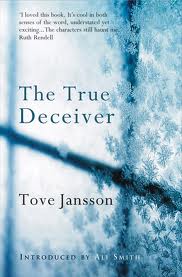It can be disappointing rereading a book that impressed you years ago. When I attempted to reread Kerouac’s On the Road, which at 19 I thought was wonderful, I couldn’t get more than a few pages into it. It was sentimental, baggy, misogynistic, and I couldn’t get past that to see the energy that had first impressed me.
But, though I must have read The Space Merchants by Pohl & Kornbluth at at even earlier age, I was just as impressed with it on recently rereading it as I was first time round the better part of four decades ago.
Like all SF of its era, it depicts a ‘future’ that falls very wide of the mark technologically (daily passenger shuttles to the moon, but no computers or mobile phones), but considering it was written in 1952, it is impressively relevant. The global struggle between Capitalism and Communism that was occurring at that the time the book was written, has long since passed. The adversary of rampant global capitalism is not communism but conservationism. Consies not commies, are the pariahs. Advertising agencies, and their huge networks of interlocking sales campaigns, rule.
I’d forgotten (or more likely did not notice aged 16) how funny the book is. Told from the viewpoint of Mitchell Courtenay who as a star class copysmith with the Fowler Schocken advertising agency (vastly superior in his eyes to the sleazy Taunton agency), is a member of the elite who (for much of the book) accepts the rules of his own society without question, a society in which sales are everything and even to mention a concern about the environment is to mark oneself out as a consie sympathiser.
“She’d been bought up in a deeply moral, sales-fearing home…”
“…the basic drive of the human race is sex. And what is, essentially, more important in life than to mould and channel the deepest torrential flow of human emotion into its proper directions? (I am not apologizing for those renegades who talk fancifully about some imagined ‘Death-Wish’ to hook their sales appeals to. I leave that sort of thing to the Tauntons of our profession: it’s dirty, it’s immoral, I want nothing to do with it. Besides, it leads to fewer consumers in the long run, if only they’d think the thing through.)”
“The Crunchies kicked off withdrawal symptoms that could be quelled only by another two squirts of Popsie from the fountain. And Popsie kicked off withdrawal symptoms that could only be quelled by smoking Starr cigarettes, which made you hungry for Crunchies… ”
You have to read the book and read these things in context to get the full effect. It’s brilliant satire. Still sharp after almost half a century.
